Seldin Award Winner Advocates Online Education
By Roger Rodby, MD, Joel M. Topf, MD, FACP - Last Updated: May 20, 2025Roger Rodby, MD, a professor of medicine in nephrology at Rush University Medical Center, received the Donald W. Seldin Award at the National Kidney Foundation Spring Clinical Meetings 2025 (SCM25) in recognition of excellence in clinical nephrology.
Dr. Rodby is well known for his efforts in internet-based education. He has more than 15,000 followers on X (formerly known as Twitter), serves as a Community Leader for the American Society of Nephrology’s online “Open Community,” and is a member of the American Journal of Kidney Diseases Social Media Advisory Group. Joel Topf, MD, spoke to Dr. Rodby at SCM25 in Boston, Massachusetts, in April.
Dr. Topf: Joel Topf with Nephrology Times. I’m here with our first-time second interview. We have only been doing this for three sessions. You’re a second-time interviewee, Roger Rodby.
Dr. Rodby: It was fun last time.
Dr. Topf: It was with Edgar [Lerma] at ASN [American Society of Nephrology Kidney Week 2024]. But now you are winning the Don Seldin Award.
Dr. Rodby: That’s right. It’s quite an honor. It’s kind of hard to believe that out of the clear blue, you get this email that says you’re winning the Don Seldin Award. It’s really fantastic.
Dr. Topf: Did you ever meet Don?
Dr. Rodby: No, I never met him. Obviously, with the award, I’ve done a little research on him. He’s one of these amazing guys. You know, there was a time there was no nephrology, and these people—they created the field by having questions and going to the lab, creating techniques in the lab, doing micropuncture.
He grew up in the Depression, and originally, I think his college degree either was philosophy and poetry or something. His fourth year, he got interested in science and applied to medical school and went to Yale. But for a long part of his career, he was not even a science guy. To think that you could suddenly go from classic liberal arts to being like one of the best scientists in the world. How does this happen? These are larger than life people that I don’t even know that we’ll ever have again. That is what it is.
He was in the service. They were all in the service back then, and then after the service—he has a really interesting story because he was kind of an ethicist through his philosophy. They took him to Dachau for some trials because there was one of the Nazis that had been doing human experimentation, and he testified. I mean, it’s a sad story. It’s a terrible story, but that’s a part of his life. He testified, the guy was convicted, and then he was hung or shot—whatever—was executed.
Then he came back and established [a medical school]—he was working in the lab for a while, and they asked him to go to UT [University of Texas] Southwestern. He went there, and apparently, there was no medical school. There was like one Quonset hut or something. He built the whole thing. It’s incredible. You look at the faculty that went through them and the people he mentored. How does anybody have that kind of vision and drive and everything? Because that’s an incredible place, and a lot of people came out. [Among] his first fellows were Brenner and Rector, the first two awardees of the Seldin Award. I don’t know if you remember the textbook [Brenner & Rector’s The Kidney]?
Dr. Topf: Yes, absolutely. I’m just old enough to actually know textbooks.
Dr. Rodby: It’s a real honor. I look at the list of who’s gotten it before, and it’s just like, come on.
Dr. Topf: You’re on the list now.
Dr. Rodby: They can’t take it away from me.
Dr. Topf: That’s amazing. You have achievements across your career, but I think most of our viewers are going to know you from your presence on ASN Communities and on Twitter. It’s amazing how you’ve adapted online medical education. Is this something that you always kind of harbored?
Dr. Rodby: Oh no. It was like a new career for me when several people, you included, and past fellows, kept introducing me to do all these different forms of social media in different ways. Communities I picked up on my own. There are these opportunities, and education has changed so much in that way. Who has a textbook anymore? Who has anything? It’s all NephJC; it’s all whatever. Bud Rose, one of our heroes, formed UpToDate.
Dr. Topf: Another pioneer. I think the impact of ASN Communities is underrecognized. You are the consultants for the consultants. You are constantly getting the most difficult cases in the country. They’re bringing them here. It’s not only you. It’s a huge community of people that contribute, but without some of the core contributors, the other people wouldn’t join in. It’s super important to have those types of leaders.
Dr. Rodby: Well, it’s really important to how you answer a question and how you handle it because you know, if you turn anybody off—you can’t offend anybody, you want everybody to feel comfortable asking any question. Dick Glassock and I are the codirectors of that. We’re pretty careful how we do that and try to do it. Thank God there’s a whole way we can tap people and bring these experts in. We constantly bring experts in.
It really is quite a good venue for people asking. It really is all over the world. It’s a little funny because these are not the simplest questions. These GNs [glomerulonephritises] are crazy, and the electrolyte stuff is crazy. I’ve learned more from all of these things by being part of them than whatever I give back. That’s not just being humble. I look stuff up, and I learn from it. I love doing it.
Dr. Topf: You have a large following on Twitter. It’s a dedicated following on Twitter. But a lot of the American nephrologists have exited Twitter. They have, for whatever reason—and I know there’s a very specific reason, but let’s go with “for whatever reason”—they’ve moved to Bluesky.
Dr. Rodby: I can’t imagine why.
Dr. Topf: And you are one of the most high-profile nephrologists who has not moved. So, I’m going to ask you right here. Why? What are you still doing on Twitter? Come on, Roger.
Dr. Rodby: The question really isn’t: Why am I still doing it on Twitter? The question is why I haven’t joined Bluesky.
Dr. Topf: OK, fair enough.
Dr. Rodby: But they’re both good questions. The reason I haven’t joined Bluesky is I have enough diversions, and I don’t need to be checking one more thing. I’m not going to get off Twitter right now because there are all these people. My feeling is that most of the people that have followed me are there for education. I think I’ll still be able to have a bigger influence with all those people than whatever-directed influence with Bluesky. “You win the battle, and you lose the war,” is what I’d say. It would be the right thing to do, but yet again, I’m not sure it’s the best for education. That’s why I’ve stayed there.
Dr. Topf: Let’s wrap this up. I want to bring it back. What are your responsibilities as the winner of the Don Seldin Award? Did you get a ribbon? Do you lead a parade? Are you opening up shopping centers?
Dr. Rodby: I get to give a speech tonight. Hopefully, after the speech, I’m going to jump into the crowd, and people are going to do that thing [waves arms]. I don’t know. I’m counting on that. No. I give a speech, and they allotted me like, 3 whole minutes, you know.
Dr. Topf: Perfect for the Twitter generation.
Dr. Rodby: I think when you got the Bob [Robert G.] Narins Award, you got a 10-minute speech. What do you say in 3 minutes? You thank the people that are important to you. One of the first people I thank is my high school biology teacher.
Dr. Topf: You saw him on Twitter. He tweeted you.
Dr. Rodby: That’s the story. It’s the most incredible thing. I wrote him a letter, maybe 20 years ago, and said, “I just want you to know you’re important to me. You’re why I went into biology and medicine. Whatever, blah, blah, blah.” And I expected to get this letter back, “Oh yeah, I remember you. You’re why I was a teacher.” These things make my day. And I never heard a word from that. I didn’t know if he was even alive.
And 20 years later, I tweet something out, and he writes back, “Well, you think your biology teacher would get a special call for this.” It’s like, what?! You’re alive and you’ve been following me, and you haven’t—on Twitter? He’s 90 and he’s healthy.
Dr. Topf: That’s actually a pretty good reason to stay on Twitter.
Dr. Rodby: Had I gone off Twitter, I never would have reconnected with my high school biology teacher.
Dr. Topf: Roger, this is great. Congratulations on the big win. Completely deserved.

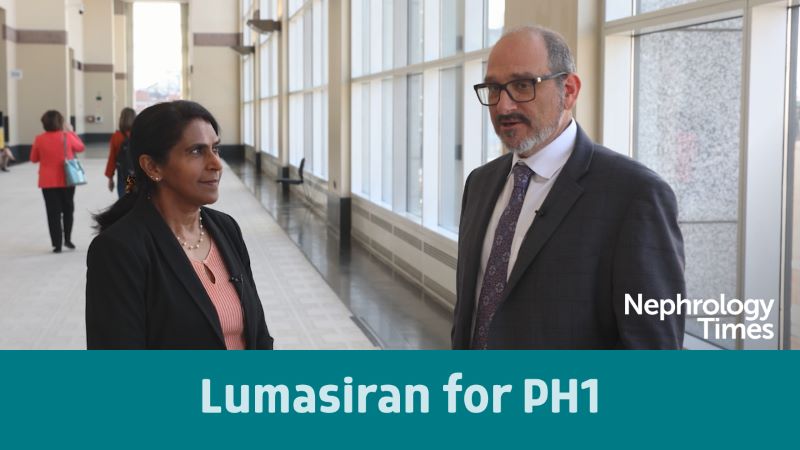
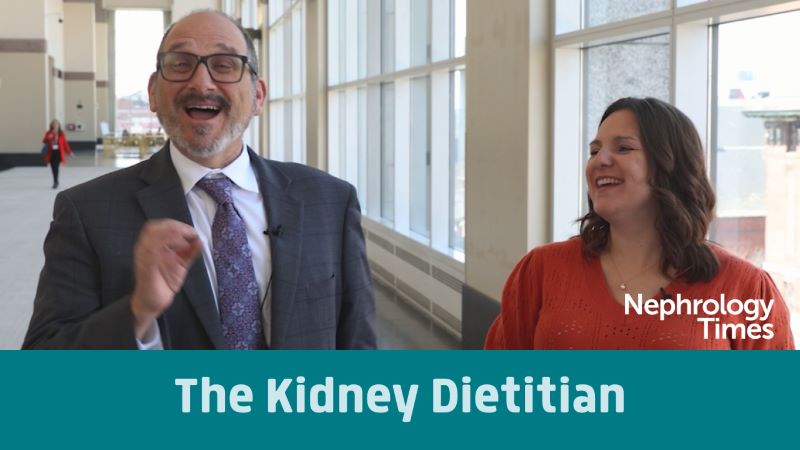
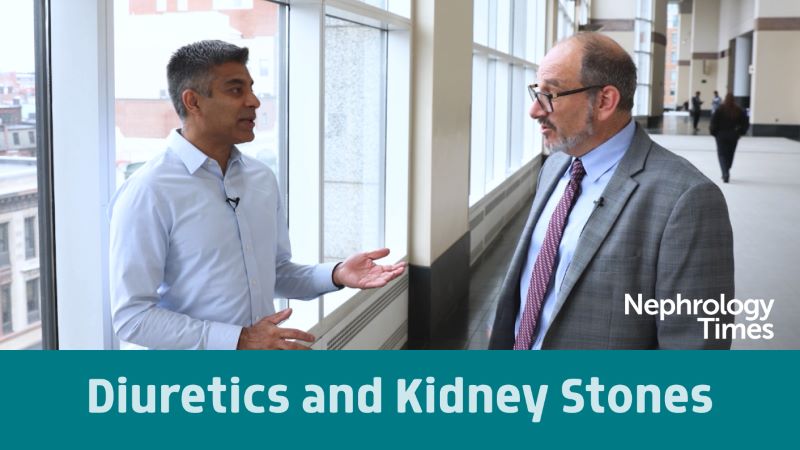
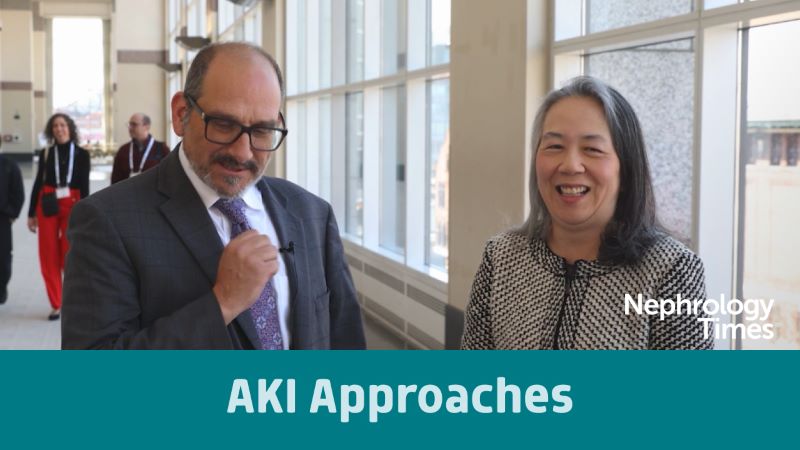
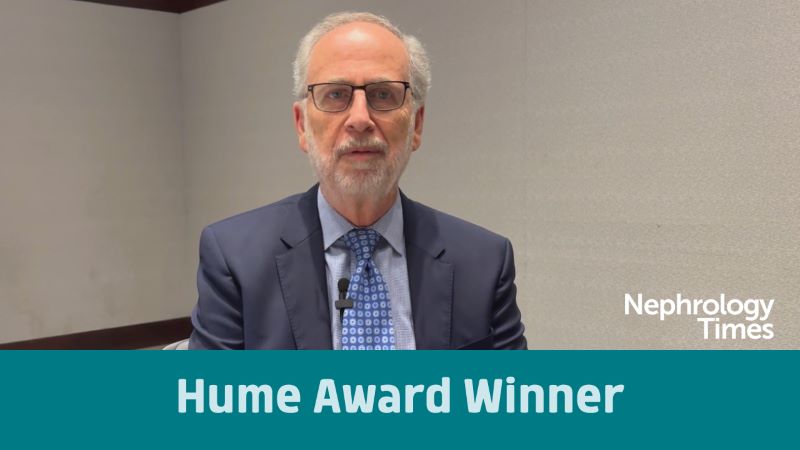

 © 2025 Mashup Media, LLC, a Formedics Property. All Rights Reserved.
© 2025 Mashup Media, LLC, a Formedics Property. All Rights Reserved.